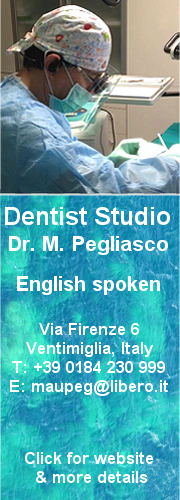General Articles
Breakdown Rules OK
It can happen to anyone.
There is never a good time or a good place for your car to breakdown.
Like all countries, France has its rules and regulations on what to do when your car breaks down, especially on the motorway. A great deal of common sense comes into play but inevitably and understandably, panic sets in. It is bad enough when you are on you own but you must take extra care when you have passengers and especially children.
Guidelines of travelling by car in France:
You must have a warning triangle and a fluorescent high visibility vest in your car at all times.
Before you call anyone:
1. Stop your car in a safe place where possible and out of the way of traffic.
2. Switch on your car's hazard lights and the sidelights.
3. Put on your high visibility jacket
4. Put up your a warning triangle, which should be clearly visible behind your car - on general roads, approximately 30 metres behind the car and on motorways, approximately 100 metres behind the car.
5. You and all passengers must be safely away from moving traffic. Take care when getting out of your vehicle. On motorways passengers and driver should ALL evacuate the car via the PASSENGER SIDE doors only. IMMEDIATELY climb over the safety barrier and get as far behind it as possible.
If you breakdown on a motorway in France you will have to use the emergency phones at the side of the road (usually situated 2 km apart) to call out the recovery service operated by the French police – nobody else is permitted to attend broken down vehicles on the motorway. You will be charged a fee, but if you ask to be taken to the nearest exit slip, you can then make your own arrangements. The emergency phones along the motorways are also fitted with GPS which means they will pinpoint your location for emergency services.
Useful numbers:
1. From a public phone, dial 17
2. From a mobile phone, dial 112
Useful translations:
| FRENCH | English |
| Allumez vous feux/lanternes | Switch on your lights |
| Attention au feu | Fire hazard |
| Attention travaux | Road works |
| Chausee deformee | Uneven surface |
| Fin d'interdiction de stationner | End of parking restrictions |
| Gravillons | Loose chippings |
| Interdit aux pietons | No pedestrians |
| Rappel | Repeat of sign |
| Route barree | Road closed |
| Permis de Conduite | Driving licence |
| Carte Verte | Insurance certificate |
| Aire de repos | Services (rest stops) |
| Huissier | Bailiff (for accidents) |
| Horodateur | Pay-and-display machine |
| Essence | Petrol |
| Sans plomb | Unleaded |
| Gazole | Diesel |
| Centre Ville | Town Centre |
| Sortie | Exit |
| Voie unique | One lane road |
| Ferme | Closed |
Driving Conditions:
Speed Limits in Dry Weather:
Toll Motorway 130kmh/ 80mph
Dual Carriageway 110kmh/ 68mph
Other Roads 90kmh/ 56mph
Built-up Areas 50kmh/ 31mph
Speed Limits in Wet Weather:
Toll Motorway 110kmh/ 68mph
Dual Carriageway 100kmh/ 62mph
Other Roads 80kmh/ 50mph
Built-up Areas 50kmh/ 31mph
Vouz n'avez pas le priorite - give way
Useful links:
http://www.autoroutes.fr/en/homepage.html
http://www.escota.fr/fr/
This article was written on behalf of Lynn Derriman - In Memory of Hafsia Marrot, who died on the A8 on Sat 26 June 2010.



